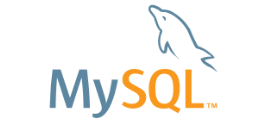Advantages of MySQL Over Other RDBMS
There are many commercial Database Management System such as Oracle, Microsoft SQL Server, and Sybase available in the market. These Database Management Systems are robust, reliable, and support most of the features that a user wants. However, it is impossible for these databases to complete with MySQL with regards to price, as MySQL is available for free. In addition, for commercial Database Management System, the initial setup cost is more expensive, resource intensive, and timing consuming, whereas with MySQL, this is not the case. This is one of the key advantages of MySQL.

Also, as the source for MySQL is fully available, you can customize MySQL as require. There are many troubleshooting techniques, command help, and syntax help that are available. This information is available in blogs, forums, and lists that do not require paid subscriptions. However, thoubleshooting techniques, command help, and syntax help for commercial databases may require a paid subscription.
Typically, open source software tends to be updated more frequently than commercial software because many users contribute to its development. As a result, new features are available more often than for commercial databases.
MySQL provides different versions that work on different versions of Linux, UNIX, Microsoft, Windows, and other operating systems. MySQL also supports various built-in and third-party GUI tools for faster and easier design implementation and administration.
Following are the other advantages that MySQL offers over other RDBMS:
- Reliable: Supports tables that can store and handle large number of records.
- Ease of Use: Provides a modular and flexible architecture that makes it easy to manage and customize.
- Cross Platform Support: Supports different operating systems, such as Linux, UNIX, and Microsoft Windows.
- Views: Supports views where data is copied into temporary or virtual tables during processing. This feature ensures data security.
- Stored Procedures: Supports stored procedures and functions. This allows you to implement business logic at the database level.
- Triggers: Supports triggers. This feature also enable you to implement business logic during data processing.
Go through this tutorial:
https://www.youtube.com/watch?v=JKsjiaoPlJY
